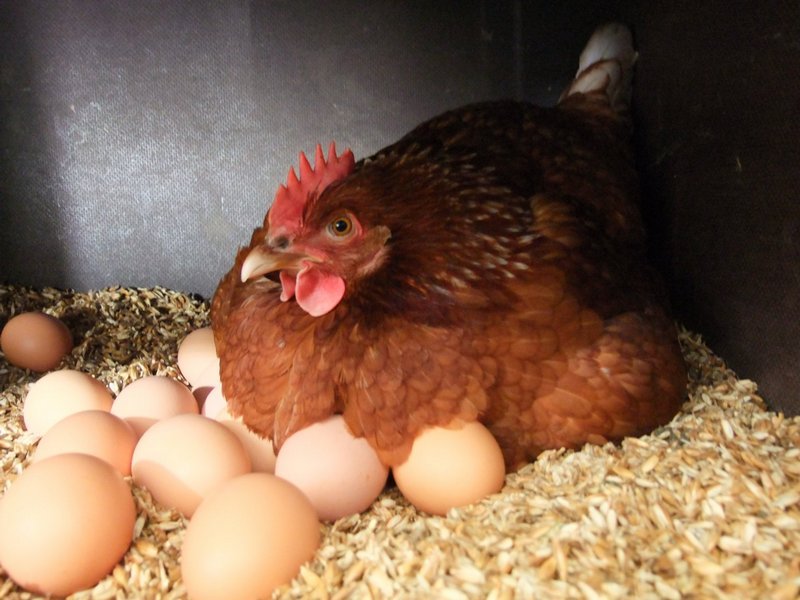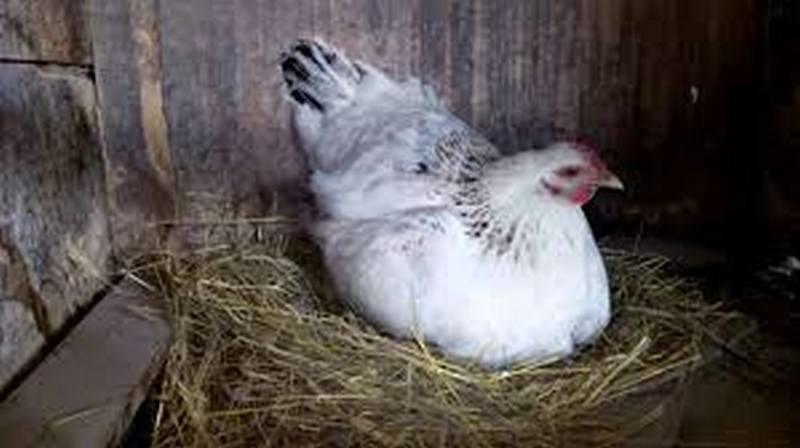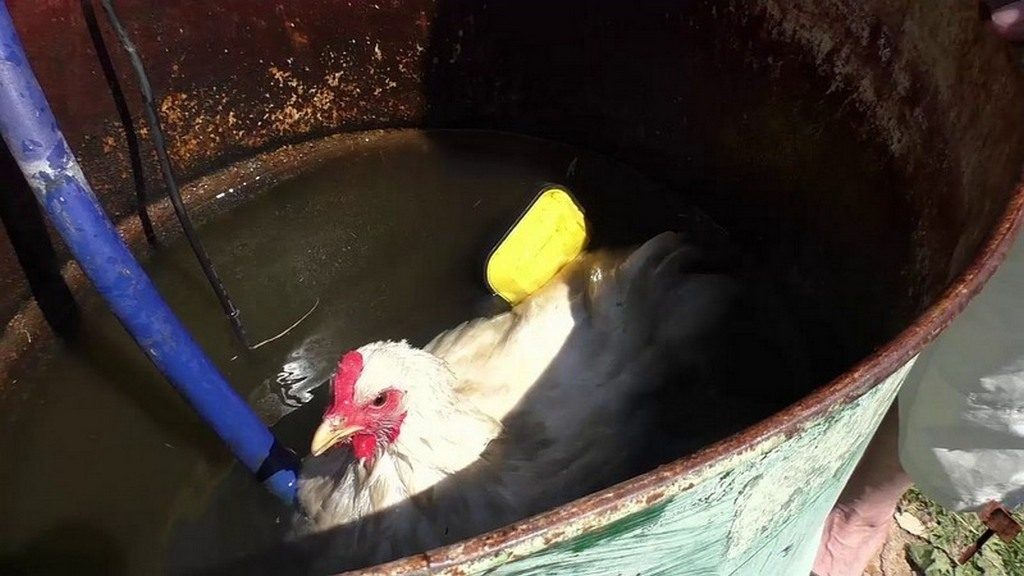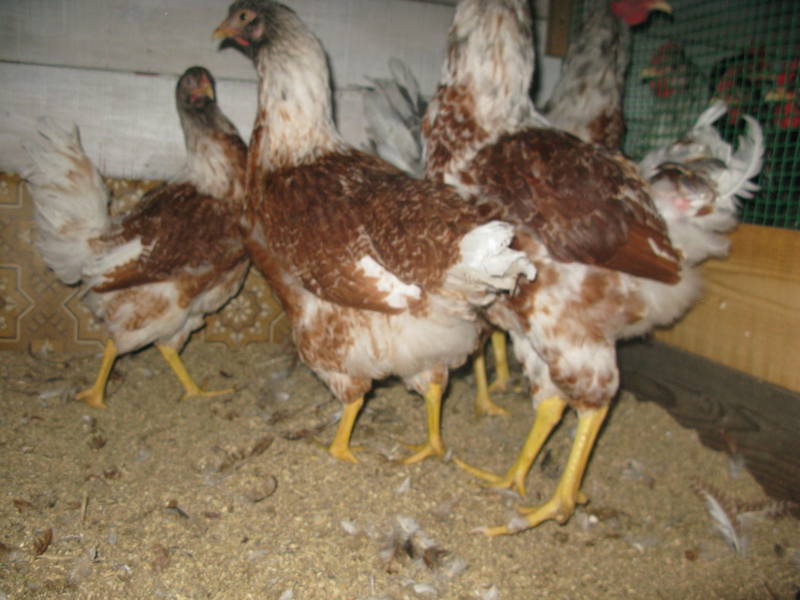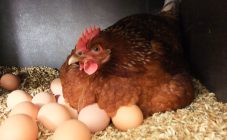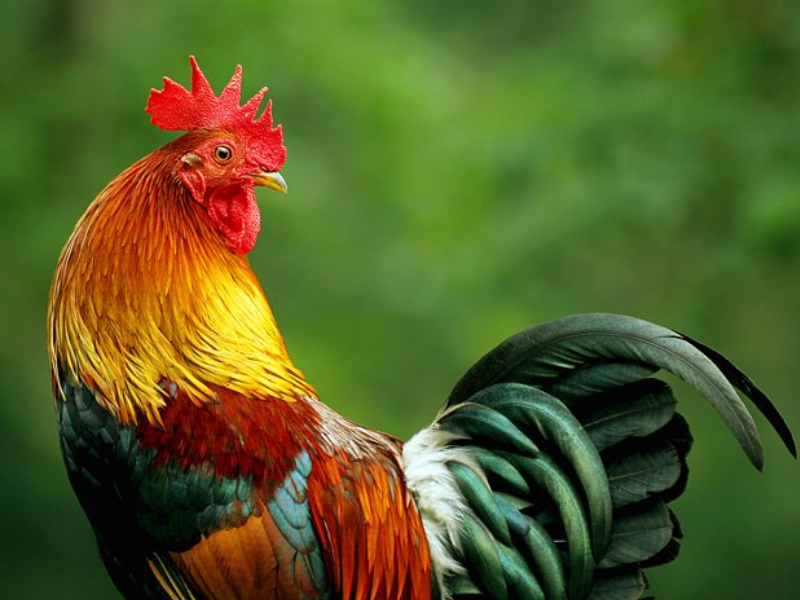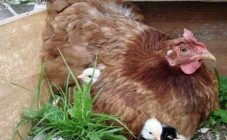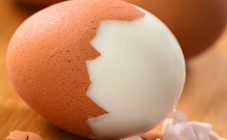Content:
When you live in a rural area, you have a house, a dacha, it is difficult to imagine a manor house without living creatures: chickens, ducks, geese, rabbits. All this fluffy, clucking, quacking backyard farm brings benefits and income to the family. Naturally, everything needs constant care, and if this is a farm, then strict control and accounting of the number of livestock is necessary.
Most often they keepchickens, because they do not require special care - the main thing is that there is always food and clean water. And almost every housewife, over time, faced such a situation: the chicken sat on the eggs.
If chickens are used to generate income, a hen is not needed on the farm, because:
- this is unplanned offspring;
- the chicken stops laying eggs (the laying hen is out of order for a long time);
- chicken noticeablylosing weight.
It is noteworthy that one or several chickens can sit at the same time. And the owner of the birds immediately has a question: how to wean a chicken from incubating eggs?
.
Several ways to get your hen back on track
There are several ways to remove the clucks from the state of mommy.
How to recognize a hen
A brooding hen prepares a nest for itself. Usually he chooses the farthest corner of the chicken coop, as darker and cooler as possible. She rakes up straw, tears feathers on her chest and puts them in a nest, insulating it so that the eggs will be warm. At the same time, it behaves quite aggressively, spreads its wings and tries to peck painfully. Can lay eggs or even roll from a common nest.
After that, it stops rushing, it comes out to eat once a day, does not get up from the nest, and at the same time it quickly loses weight. She tries to hatch the chicks.
The first way
How to remove a hen from the nest? First, try to isolate it from the nest. Take it outside and feed. You can tie it by the leg for a while so that it does not run back into the chicken coop. A couple of such days on a leash may well cool the ardor of motherhood.
If the hen has already prepared a separate nest for herself, it is removed, bedding is taken out, and something large, not suitable for incubation, is placed in this place.
If the brood hen has taken a common roost where all the hens are laying, then this place is isolated. Cover for a while with a box or put something heavy, blocking access to the nest. In this case, without access to a place, the hatching instinct most often fades away. And very soon the chicken returns to its duties - to lay eggs.
Second way
If the first, relatively simple method did not help, then more stringent measures are taken to discourage the desire to incubate offspring.
The most common, old-fashioned folk method of how to get a hen out of the state of a hen is called shock therapy. The method is far from humanism.
It consists in the fact that the chicken is dipped in cold water (not ice cold), up to the neck or even with the head. Repeatedly. The fact is that when the laying hen is ready to hatch, her body temperature rises by 2 degrees, based on heating the eggs. Bathing lowers the temperature and kills any further urge to cough. The method is considered quite tough, but it is not always effective.
Third way
The next way to discourage a hen from sitting on a nest is imprisonment - it is put in a dark box or basement for several days. Since chickens love light and warmth, the desire to cough disappears. It is important not to forget to feed the bird, otherwise it will die completely.
Or they arrange a hungry quarantine, close them in a separate room for several days and do not feed them.
Using such cruel options, you should be aware that the desired result is not always achieved:
- firstly, after such a bath, the chicken may completely stop laying eggs;
- secondly, this method does not always help to drive the chicken away, the bird still strives for the nest and takes its usual place;
- thirdly, from cold water it can get sick, and prolonged hunger strike and starvation of the animal will lead to death.
Fourth way
So, how to wean a chicken from hatching and what to do with a chicken so that it does not sit on eggs? You can use a very good and effective technique.
If the hostess has been dealing with animals for a long time and she has some experience of communicating with animals, then she will easily notice certain changes in her laying hen, which indicate that the chicken is preparing to sit on eggs. For example: the hen is actively rushing, clucking, walking cackling. At the same time, it is noticeable that her fluff has been torn out in her places. This gives rise to suspicion. So you need to prepare the chicken for resettlement.
Weaning consists in the fact that the chicken is placed in a separate cage, made of a metal mesh, 80x80 cm in size. This cage is placed in a chicken coop, the hen is well fed. For the day, the cage is taken out to the pen, where all the chickens are located, so that she is among the whole poultry house and active layers. If possible, extend her daylight hours.
The bottom of the cage should also be made of a net, so that the captive could feel the ground, straw or hay with her feet, but could not roost herself. They are kept in such captivity for up to a week. During this time, her ardor fades. By the end of the quarantine, a neighbor, a rooster, is planted. The instinct to lay eggs is restored. Moreover, the first testicle may appear already here in the cell. It must be picked up immediately. At night, roost a chicken in a hen house. If in the morning she runs out into the street, and only lingers in the nest to lay another egg, the spa treatment went to her advantage.
Using different methods, and after just a few therapy sessions, to bring the chicken to life, until next year, the question of what to do so that the hens do not sit down to hatch eggs disappears. Because the instinct for hatching offspring arises only in the warm season.
But sometimes there are chickens who stubbornly want to sit and bring out the chickens. These are usually mongrel pies. Probably, they can still be given this chance, especially since a small number of small fluffy lumps will not greatly affect the economy.
